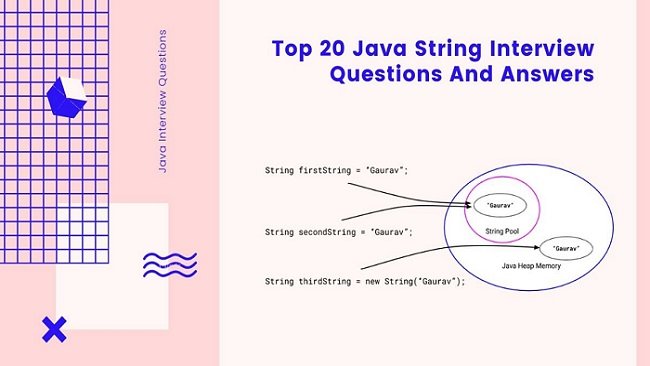In today’s competitive business landscape, securing a management role requires not only a robust skill set but also a strategic approach to the interview process. As organizations seek leaders who can navigate complexity and inspire teams, the ability to effectively communicate one’s qualifications and vision becomes paramount. This article delves into essential strategies for interviewing for management roles, focusing on key aspects such as strategic preparation, behavioral interviewing techniques, and the importance of cultural fit. By employing these strategies, candidates can enhance their ability to convey their leadership capabilities, align with organizational objectives, and ultimately position themselves as the ideal choice for executive positions. Whether you are a seasoned professional or an aspiring leader, mastering these approaches will significantly elevate your interview performance and increase your chances of success in the management realm.
Table of Contents
- Understanding the Key Competencies for Effective Management Interviews
- Crafting Targeted Questions to Assess Leadership Potential
- Evaluating Behavioral Responses to Gauge Problem-Solving Skills
- Implementing Structured Evaluation Frameworks for Consistent Decision Making
- The Conclusion
Understanding the Key Competencies for Effective Management Interviews
In the realm of management interviews, understanding the core competencies required for effective leadership can significantly enhance both the interviewee’s and interviewer’s experience. Competencies are the skills and behaviors that contribute to successful managerial performance. Some fundamental competencies to consider include:
- Strategic Thinking: The ability to plan and assess long-term goals while crafting actionable steps.
- Decision-Making: Evaluating options and making informed choices that reflect organizational objectives.
- Communication Skills: Effectively conveying ideas, motivating teams, and facilitating collaboration.
- Emotional Intelligence: Recognizing and managing one’s emotions, as well as understanding the emotions of others.
- Adaptability: Responding to changing environments and shifting organizational dynamics with agility.
To further elaborate on these competencies, it is helpful to break them down into measurable behaviors that could be assessed through interview questions. Below is a brief overview of how these competencies can translate into observable actions:
| Competency | Observable Behavior |
|---|---|
| Strategic Thinking | Articulates a clear vision and identifies critical paths to achieve it. |
| Decision-Making | Evaluates risk and consequence effectively before making choices. |
| Communication Skills | Engages actively in dialogue and encourages input from team members. |
| Emotional Intelligence | Demonstrates empathy in discussions and nurtures team morale. |
| Adaptability | Responds positively to feedback and shows resilience in challenging situations. |
Crafting Targeted Questions to Assess Leadership Potential
In order to effectively assess leadership potential during interviews, it’s essential to formulate questions that not only gauge a candidate’s experience but also their mindset and approach to challenges. Consider asking behavioral questions that illuminate past decisions, such as:
- Describe a time when you had to lead a team through a significant change.
- Can you provide an example of a conflict within your team and how you resolved it?
- What strategies have you employed to motivate a team that is underperforming?
These questions enable candidates to share their real-world experiences while allowing interviewers to understand their decision-making processes and adaptability in various situations.
Moreover, situational questions that present hypothetical scenarios can reveal a candidate’s forward-thinking abilities and problem-solving skills. Questions like:
- If your team missed a critical deadline, how would you handle the situation with both team members and stakeholders?
- Imagine you have to manage a project with limited resources; what steps would you take to ensure its success?
- How would you go about creating a culture of innovation within your team?
provide insight into how candidates envision their leadership style and the frameworks they would use to navigate potential challenges. These inquiries not only assess skills but also align candidates’ approaches with organizational values and objectives.
Evaluating Behavioral Responses to Gauge Problem-Solving Skills
When interviewing candidates for management positions, it’s crucial to delve into their past behaviors as a means to predict future performance. Utilizing behavioral interview techniques allows interviewers to assess how candidates have tackled challenges, collaborated with teams, and driven results in previous roles. This approach is predicated on the belief that past behaviors are the most reliable predictors of future actions. Key questions should encourage candidates to reflect on specific situations, emphasizing their thought processes and decision-making strategies.
To effectively gauge problem-solving capabilities, consider structuring your questions around the following areas:
- Conflict Resolution: Ask candidates to describe a time they resolved a dispute within their team.
- Innovative Thinking: Explore instances where they developed a creative solution to a complex problem.
- Adaptability: Inquire about a situation that required them to pivot quickly in response to unexpected challenges.
By analyzing responses to these targeted queries, interviewers can create a clearer picture of a candidate’s analytical skills and how they navigate real-world managerial dilemmas. Consider documenting these responses in a structured table format for easy comparison among candidates:
| Candidate | Conflict Resolution | Innovative Thinking | Adaptability |
|---|---|---|---|
| Candidate A | Facilitated mediation sessions | Implemented a new software tool | Shifted project goals in response to client feedback |
| Candidate B | Negotiated a team compromise | Redesigned workflow processes | Adjusted strategy based on market changes |
Implementing Structured Evaluation Frameworks for Consistent Decision Making
Implementing structured evaluation frameworks is essential for ensuring that decisions made during the interview process are both objective and consistent. Such frameworks provide a set of criteria that alignment stakeholders can rely on, ensuring that interviews are not influenced solely by subjective impressions. By utilizing standardized scoring rubrics and behavioral assessment techniques, hiring managers can systematically assess candidates against the same benchmarks, thereby increasing the fairness and reliability of the selection process.
To establish a robust framework, organizations can incorporate elements such as:
- Clear Job Descriptions: Ensure that the qualifications and responsibilities are well defined.
- Competency Models: Identify key competencies relevant to the management role.
- Structured Interview Questions: Develop a consistent set of questions that evaluate both technical skills and soft skills.
- Feedback Mechanisms: Create a process for gathering input from multiple interviewers to enhance decision-making.
| Framework Component | Purpose |
|---|---|
| Job Descriptions | Clarify expectations |
| Competency Models | Align skills with organizational needs |
| Structured Questions | Reduce bias and improve validity |
| Feedback Mechanisms | Enhance decision-making through diverse perspectives |
The Conclusion
effectively preparing for management role interviews requires a strategic approach that encompasses a thorough understanding of both organizational dynamics and interpersonal skills. By implementing the essential strategies outlined in this article—such as developing a comprehensive understanding of the organization’s culture, demonstrating clear leadership capabilities, and articulating a vision for team success—candidates can significantly enhance their prospects of securing a management position. Furthermore, honing skills in active listening, behavioral questioning, and situational analysis will not only prepare candidates for potential interview scenarios but also equip them with the tools necessary to thrive in leadership roles. By prioritizing these strategies, individuals can position themselves as compelling candidates, ready to contribute to their organizations’ long-term goals and objectives. As the landscape of management continues to evolve, ongoing professional development and a proactive approach to building leadership competencies will remain paramount for aspiring managers in today’s competitive job market.






